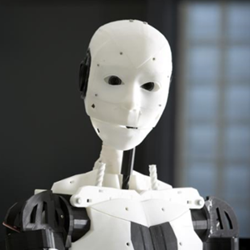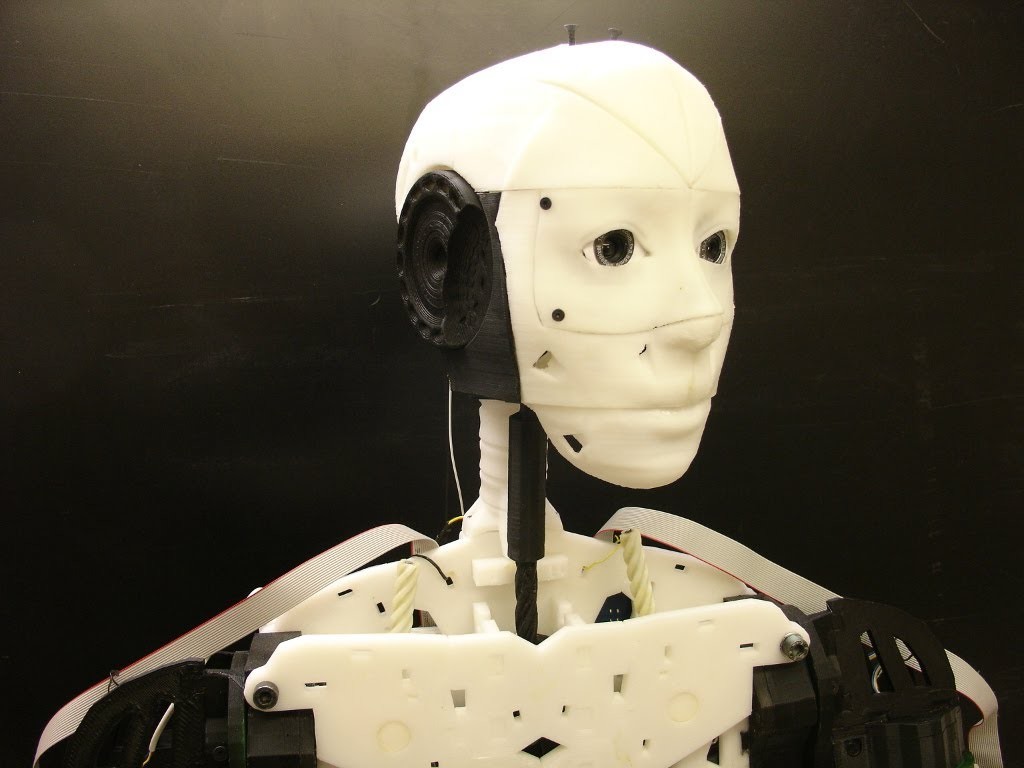On Robots and Listening
As ever, change is afoot. Autumn is heading for winter, for example. Starbucks is well into shifting its holiday paperware (the plain red paper cups a significant and publicized offense to a few “Christmas-only” types). Oceans are heating up, children are growing taller and Artificial Intelligence is animating robots to replace workers around the globe.
There’s much more – and too much of it troubling. But you know that.
So, this is a pause on the change associated with Artificial Intelligence (AI). AI has been growing from it’s birth way back in the days of those stacks of be-rectangled cards fed into the first mainframe computers. For the technically curious among us, it’s been captivating to play at simulating human thought in virtual rendition. More than the fodder from science fiction, this impulse has shown up for real in forms as distinct as ATMs, u-checks, self-driving cars, weather prediction, drones and complex disease diagnostics.
The presence of AI in the daily life of the globe and its beings is only advancing. A recent article on robotics in the Guardian quotes a Merrill Lynch/Bank of America study that predicts 35% of all jobs in the UK and 47% of the jobs in the US are on line to be eliminated by replacement with AI and/or robotic technology. Scary?
For sure, it’s real. A good friend of mine told me just this morning that he and his partner in a small manufacturing start up are actively seeking to buy two robots. “It’s the next step. We can’t keep up with orders without them.”
Benedikt Frye and his colleague Michael Osborn, economic researchers with track records studying these kinds of trends, suggest that our collective plunge into a sense of panting economic doom is actually quite unnecessary. Speaking with the London Observer, Frye pointed toward empirical indicators that while some workers are being replaced with robotics, new jobs are emerging reliably, like light with every dawn. These jobs tend to take the form of services by people to and for people. “The fastest-growing occupations in the past five years are all related to services,” he observed. “The two biggest are Zumba instructor and personal trainer.”
There may also be another heartening side-effect of AI related phenomena. As services from accounting to medical diagnostics (and some treatments), to navigating the legal system continue to show up with more sophistication and at considerably less cost via internet services, the professions themselves are turning an eye to what they call soft skills.
Is there a mainstay, an anchor for this array of relational skill (e.g., being actively friendly, curious, vulnerable, encouraging, even nurturing)? Yes. Listening. Not just the idea of it. The practice of it; the experience of its effects.
Business managers are developing skills way beyond rote renditions of things to say to “make employees feel heard.” Accountants and construction contractors are working with consultants and coaches. Medical and judicial professional organizations are engaging in active questioning to consider the social skills they’ve been missing.
While before the rationale may have been on production, billable hours and the delivery of expertise reserved for one’s guild, now more personal bottom lines – most painfully in personal income and threats to employment – are calling the shots.
Attention is turning to whether or not it is worth learning to listen. And if listening is deemed a good idea, many professions are coming to understand and admit that their members do not know how. To listen, that is. Really listen. To be fully and authentically engaged in making meaning with other people (clients especially).
As it turns out, listening is something all people have that, at this point, robots don’t. Its activation, however requires intense practice with – well, for one thing – humility. For example, listening requires giving up being the smartest person in the room. Being willing to be persuaded, to be peer in a team, to have power with instead of asserting power over.
These soft skills have been long devalued because of their seeming lack of immediate application to the bottom line of productivity. A side-effect of the introduction of robots capable of producing some things with way more accuracy and efficiency may be to shift public values so relationships among people matter. In that shift, priority falls to listening – to working well together in support of health, happiness, generativity and the communities in which we live.
 Clare Consultation, LLC
Clare Consultation, LLC
I have always appreciated being listened to (bad grammar!) No wonder robots are unappealing to me!